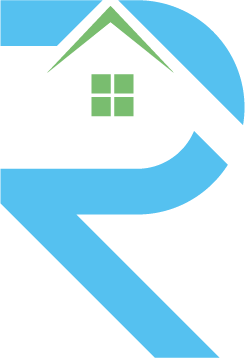Debt consolidation
Debt consolidation is a financial tactic that enables people to consolidate their debts and better manage their financial commitments. This strategy is consolidating numerous high-interest loans into a solitary, more manageable loan or payment schedule.
Make a note of every debt you have before considering debt consolidation, noting the amount owing, current interest rates, and monthly payments. We can decide if debt consolidation is the best option for you with the use of this information.
Applying for your new mortgage is the next step. You will need to provide evidence of your income, credit history, and debt, just as when you applied for your first mortgage. After being approved, you will get the funds, which you will use to pay off your present bills.
Advantages of debt consolidation
There are many benefits to debt consolidation, and these benefits can be quite helpful for people trying to take back control of their finances.
- Simplified payments: One of the biggest advantages of consolidating your debt is the decrease in your monthly payments. Keeping track of your debts may be challenging if they have various interest rates and due dates. By merging these bills into a single, easier-to-manage monthly payment, debt consolidation lowers the likelihood of late payments.
- Lower interest rates: Balances on credit cards and personal loans with high interest rates can quickly rack up expensive interest costs. A typical stage in debt consolidation is negotiating a lower interest rate on the combined loan. This suggests that you might be able to reduce the total cost of your debt and pay it off more quickly.
- Improved credit score: Maintaining a sound credit score depends on making regular, on-time payments. Making on-time payments while enrolled in a debt consolidation program proves to creditors your ability to manage your finances. This can eventually result in an increase in credit score, making it simpler to obtain loans and credit in the future on favorable circumstances.
- Fixed repayment terms: Since debt consolidation loans frequently have defined repayment periods, you’ll know exactly when your debt will be repaid. This predictability might give you peace of mind and enable you to confidently prepare for your financial future.
- Debt reduction strategy: A few debt consolidation programs provide choices for debt negotiation or settlement. You may have the opportunity to reduce your overall debt burden through negotiations with your creditors, which can be an effective strategy if you’re struggling with substantial debt.

Let’s illustrate the concept of debt consolidation with a simple scenario:
Imagine you’re an individual planning to purchase your first home. You’ve diligently saved for a down payment, but you also have multiple outstanding debts to manage:
Credit card debt: You carry a balance of $10,000 on one credit card, while your spouse has another card with a $7,000 balance. Both cards have high-interest rates, approximately 18% APR.
Car loan:Both you and your spouse have car loans, with your remaining balance at $5,000 and your spouse’s at $3,000.
Student loans: You both have student loans, totaling $30,000. New Home Purchase: You’ve identified your dream home, priced at $300,000.
New home purchase: You have found your dream home, and it costs $300,000. You plan to make a down payment 0f $60,000(20% of the purchase price), which leaves you with a mortgage of $240,000.
Debt consolidation:
You decide to explore debt consolidation as part of your home buying process. You discuss your options with your mortgage lender who specializes in debt consolidation. Here is how it works:
- New mortgage: You apply for a mortgage of $240,000 to purchase your home. You secure a competitive interest rate of 4% for a 30- year fixed-rate mortgage.
- Debt consolidation: As part of your mortgage application, you choose to include your existing debts in the new mortgage. The lender agrees to pay off your outstanding debts directly from the mortgage proceeds. The total amount of your existing debts is $55,000(credit card debts, car loans, and student loans combined).
- New monthly payment: With the debt consolidation, your monthly mortgage payment, including principal and interest, comes to approximately $1,145.
It’s crucial to keep in mind that debt consolidation in a situation involving a house purchase necessitates careful analysis and consultation with a mortgage expert. It can be advantageous, but it also raises the overall mortgage amount and lengthens the time before previous obligations must be repaid. In order to make sure that their total financial situation is in line with their long-term objectives, prospective homebuyers should evaluate their capacity to manage the combined mortgage and other existing debt commitments.
A financial technique known as mortgage refinancing is exchanging your current mortgage for a new one that often has better conditions. This may result in fewer interest charges, lower monthly payments, and greater financial flexibility.

Advantages of mortgage refinancing
- Cheaper interest rates: Securing a cheaper interest rate is one of the main reasons consumers think about refinancing their mortgages. When market interest rates drop or when your credit score improves, you may qualify for a mortgage with a lower rate. This can save you money over the course of the loan and drastically lower your monthly mortgage payments.
- Shorter or longer loan terms: Refinancing provides you the freedom to select a different loan term. For instance, you can refinance from a 30-year mortgage to a 15-year mortgage, which may result in higher monthly payments but would hasten the repayment of your mortgage. In contrast, you might choose a longer term to reduce your monthly payments and enhance your cash flow.
- Cash-out refinance: Homeowners who have equity in their residences might use a cash-out refinance to access that equity. This entails borrowing more than your outstanding mortgage balance and receiving the cash difference. The money can be utilized for a number of things, including debt relief, house upgrades, and other financial requirements.
- Debt consolidation: Mortgage refinancing can be an effective way to consolidate high-interest debts. By rolling your outstanding debts, such as credit card balances and personal loans, into your mortgage, you can potentially reduce the overall interest costs and simplify your financial obligations.
- Improved financial flexibility: Lowering your monthly mortgage payment through refinancing can free up money for other financial goals, such as saving for retirement, funding your children’s education, or building an emergency fund. This improved financial flexibility can provide peace of mind and enhance your overall financial well-being.
Switching loan types: Refinancing also allows you to switch between different types of mortgages. For instance, you can transition from an adjustable-rate mortgage (ARM) to a fixed-rate mortgage, providing stability in your monthly payments, or vice versa, depending on your financial goals and market conditions.
People looking to improve their financial conditions may find that both debt consolidation and mortgage refinancing have a number of advantages. Before choosing any course, you must carefully consider your unique situation, your objectives, and all the related costs and hazards. You can make decisions that are in line with your long-term financial goals and simplify the decision-making process by getting in touch with me or speaking with me.



